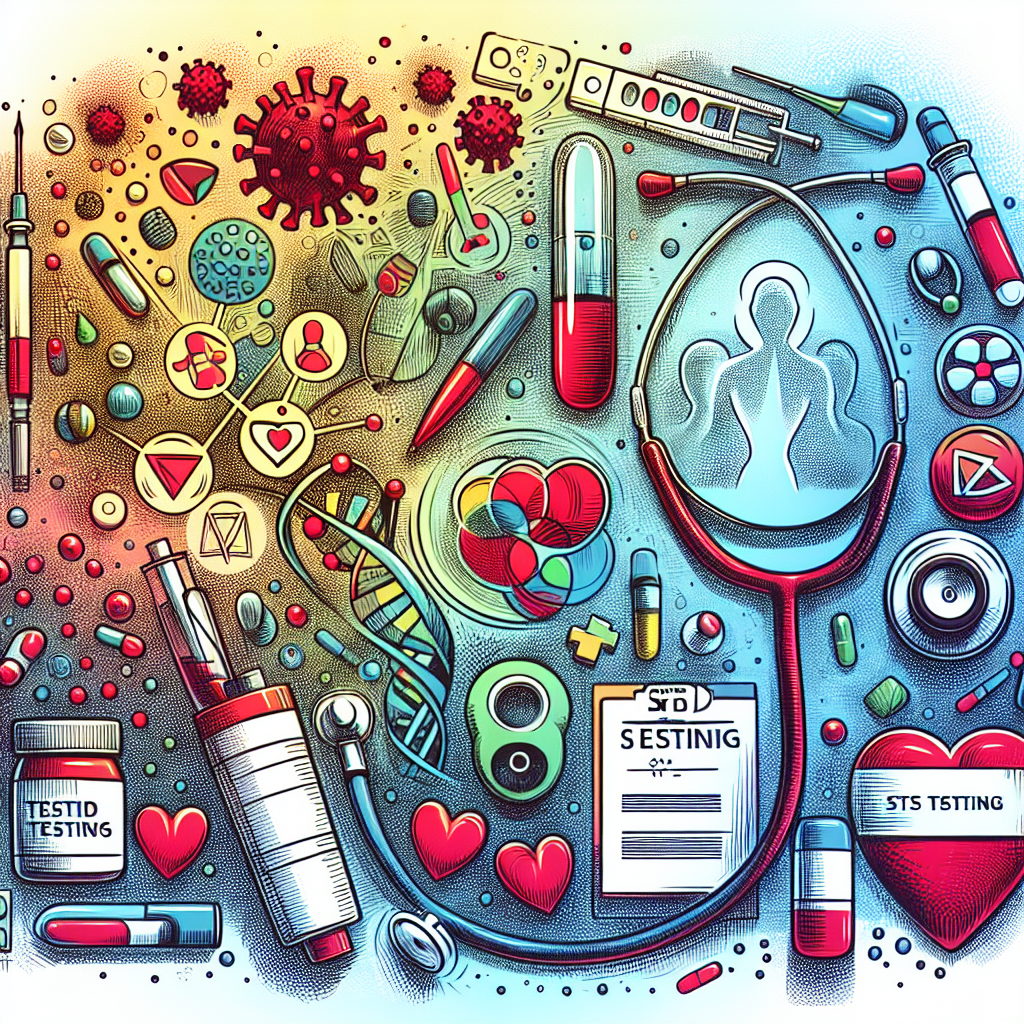Introduction
Imagine waking up one day with a nagging worry, a silent fear that something isn’t quite right. For many, this is the reality of discovering they might have contracted a sexually transmitted infection (STI). Among these, chlamydia stands out not only for its prevalence but also for its stealthy nature. But the burning question remains: Is chlamydia curable? The short answer is yes. This article will guide you through the labyrinth of diagnosis, treatment options, and preventive measures available in the United States, ensuring you emerge informed and reassured.
Table of Contents
- Understanding Chlamydia
- Symptoms and Diagnosis
- Treatment Options
- Preventive Measures
- Frequently Asked Questions
- Conclusion
Understanding Chlamydia
Chlamydia is like a stealthy intruder, often slipping into the human body unnoticed. Caused by the bacterium Chlamydia trachomatis, it is one of the most common STIs in the United States. According to the Centers for Disease Control and Prevention (CDC), millions of new cases are reported every year. But unlike some other infections, chlamydia can be cured with the right treatment.
How It Spreads
Chlamydia spreads primarily through sexual contact, including vaginal, anal, and oral sex. It can affect both men and women and may cause serious reproductive issues if left untreated. Pregnant women can also pass the infection to their babies during childbirth, potentially leading to complications such as pneumonia or eye infections in newborns.
Symptoms and Diagnosis
One of the trickiest aspects of chlamydia is its ability to remain asymptomatic in many individuals. When symptoms do appear, they can include:
- Painful urination
- Abnormal vaginal or penile discharge
- Swelling and pain in one or both testicles for men
- Pelvic pain in women
If you suspect you might have chlamydia, seeking a general medical evaluation is crucial. Early diagnosis through lab tests can prevent long-term health issues. For residents in La Grange, a convenient option is the local lab testing services.
Treatment Options
The good news is that chlamydia is easily treatable with antibiotics. Common medications include azithromycin and doxycycline. A single dose of azithromycin or a week-long course of doxycycline typically clears the infection. It’s vital to complete the full course of treatment even if symptoms disappear quickly.
Your healthcare provider might suggest additional measures such as avoiding sexual activity until you and your partner(s) complete treatment to prevent re-infection.
Preventive Measures
Prevention is better than cure—an age-old adage that rings especially true for STIs. Here are some steps you can take to protect yourself from chlamydia:
- Use condoms consistently and correctly.
- Limit the number of sexual partners.
- Get regular STI screenings, particularly if you’re sexually active with multiple partners.
- Avoid douching as it can disturb the natural balance of bacteria in the vagina.
For those living near Willowbrook or Burr Ridge, accessing diagnostic facilities like an Xray center can be essential for comprehensive health evaluations.
Frequently Asked Questions
Can chlamydia come back after treatment?
Yes, it’s possible to get re-infected with chlamydia if you have unprotected sex with an infected person. Always ensure your sexual partners are tested and treated as well.
How long does it take for symptoms to appear?
Symptoms may appear within one to three weeks after exposure. However, many people don’t experience any symptoms at all, making regular screenings crucial.
Is there a vaccine for chlamydia?
No, currently there is no vaccine available for chlamydia. Prevention relies on safe sexual practices and regular screenings.
Conclusion
While the diagnosis of chlamydia may feel overwhelming initially, remember that it is a curable condition. Early detection through proper medical evaluations and lab tests, followed by timely antibiotic treatment, ensures a full recovery. Adopting preventive measures can shield you from future infections and contribute to your overall wellbeing.
Your journey toward better sexual health begins with awareness and action. If you suspect any symptoms or need more information about treatments, consider visiting local facilities like the urgent care center in Willowbrook.
Take control of your health today—because peace of mind is priceless.




